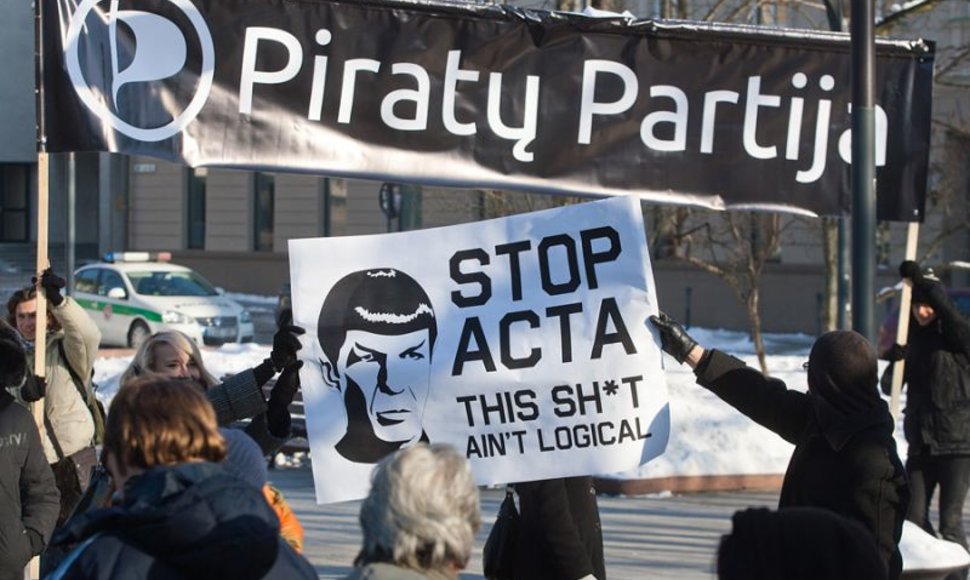Young people made up the bulk of the turnup in the rally, which started at noon. They chanted "ACTA Stop", "No to the Bulldozer Principle," holding banners that said "Uncensored Communication - Bright Future for Mankind," "Corporations + Governments = ACTA," "Independent Web - Human Evolution," "Stop ACTA - For Freedom to Share."
"I do not agree with the oppression of intellectual rights. When it comes to the West, it may be good for them, as they have already build their business, while the developing countries still face the shortfall, if the oppression is legalized. I believe that intellectual products do not come out of nowhere, a person does not sit and invent everything himself. There were hundreds of people before him who created science, the society supports science via the state, and somebody claims rights to intellectual property monopolizes it," a participant told BNS.
Another participant said she came to the rally in fears of restriction of film and music downloads from the Internet.
"Why wouldn't we be allowed to do this?" she asked.
One more participants said that ACTA was not a proper tool to stop piracy, saying he occasionally downloaded movies and used illegal software but was trying to cut back on the use of unlawful production.
"I am more alarmed not by what I find in ACTA but by what I don't find. I mean promotion of open technologies, as ACTA is created by those who develop their old business models based on closed technologies," he added.
The rally lasted for about an hour and involved no incidents.
Lithuania and 21 more European countries signed the document las month. Authors of the anti-counterfeiting agreement maintain it would facilitate better protection of intellectual property, which is seen as causing damage to economic development.
However, critics say that the proposed tools for fighting unlawful downloading of copyrighted materials, including large corporations, would provide excessive powers to take measures, such as shutdown of websites.
Lithuania's Justice Minister Remigijus Šimašius has expressed doubts about some provisions of the treaty. In his words, he has some doubts about certain provisions that oblige Internet service provider to immediately share information needed for identification or removal of potential copyright of trademark ownership violation.
Furthermore, the agreement stipulates rather rigid penal sanctions.
After the first wave of protests, some European nations have already said they would not rush with ratification.
























